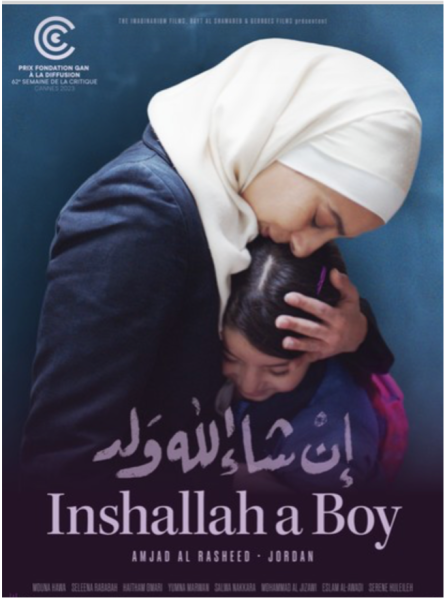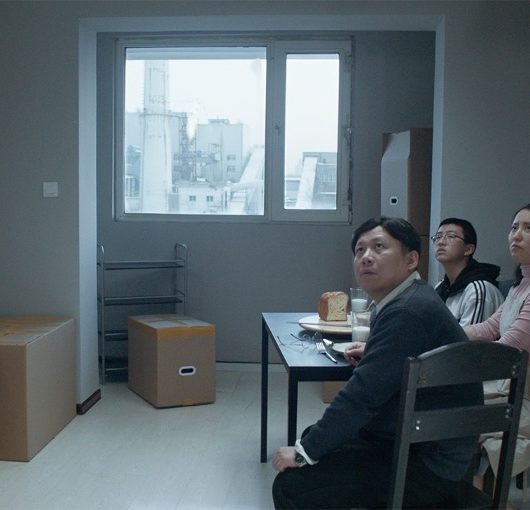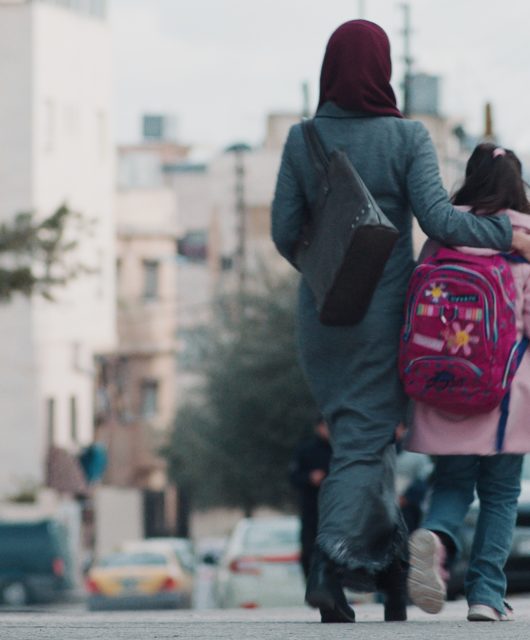What happens when a woman’s life is determined by her unborn child? What happens if a woman can only keep her possessions when the child is male? These are the questions explored in Amjad Al Rasheed’s movie “Inshallah a Boy”, inspired by a similar situation in the director’s family. The movie was screened at the FIFF 2024 and won the Critics’ Choice Award.
Jordan, present day. Nawal has a young daughter when her husband unexpectedly passes away, leaving them alone. According to the country’s laws, the widow risks losing her inheritance and property rights if she does not have a male child. Suddenly, Nawal faces the possibility of not being able to live in her apartment anymore. There is only one thing that would save her: being pregnant with a boy. What would it mean for Nawal to be pregnant? If the child was a boy, she could keep the whole inheritance. If the child was a girl, her late husband’s family would share the inheritance, although Nawal would have an added share to it. However, a new child would mean a new responsibility, in addition to already having a daughter and needing to provide for her. Would it really be the best choice?
“Inshallah a Boy” is a wonderful portrayal of womanhood and motherhood in a country where being a woman means having less value than a man. At times funny and at times very emotional, Mouna Hawa, the actress playing Nawal, excels in bringing the character and the story to life. When the men in Nawal’s life let her down, the connections she makes with other women become particularly important. An unusual friendship blossoms with Lauren, the daughter of the woman she works for. One is pregnant and does not want the child, the other desperately wishes to be pregnant. Although coming from very different cultural and economic backgrounds, they find ways to help each other as best as they can.
The screenings at the FIFF had the privilege of having the director speak about the movie. Amjad Al Rasheed talked about the main inspiration for “Inshallah a Boy”, which was witnessing a similar situation happen in his family. The woman, differently from Nawal, had the luck of being allowed to live in the house. This detail struck Al Rasheed: it was weird that someone needed permission to live in their own home. He found himself thinking: What if they didn’t? What would have been the woman’s options? That is how the movie came to be.
Al Rasheed talked about the typical difficulties he encountered while making his first feature film: developing, finding the right tone and style, and mainly obtaining funds that would finance the project. He was very proud of being for the most part funded by Arab countries, such as Jordan, Saudi Arabia, Qatar, and Egypt.
“Inshallah a Boy” has not yet been released in Jordan, premiering first in festivals. Nonetheless, it has been shown in Saudi Arabia, which is culturally very similar to Jordan. Al Rasheed talked about how the stress he felt about the screening in Saudi Arabia was higher than when it premiered in Cannes. “The movie is coming home,” he described it. But the reaction was astounding: the public clapped, laughed and cried during the screening, overall enjoying it. Amjad Al Rasheed hopes that his movie will open a conversation on these hard, and often taboo topics. “The film begins when the ending credits start rolling, and the people talk about it in their homes,” he said. That is the true power of cinema for him, and he hopes that “Inshallah a Boy” will initiate a healthy conversation about the situation of women in his country.
Text Valentina Tobler
Beitragsbild © Féstival International de Films de Fribourg (FIFF)
Inshallah a Boy
 Country: Jordan
Country: Jordan
Director: Amjad Al Rasheed
Year: 2023
Length: 113 minutes
FIFF Category: International Competition: Long Films






